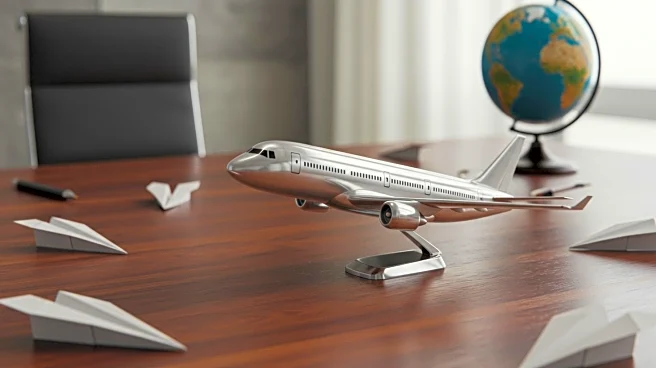What is the story about?
What's Happening?
Air Canada has suspended all operations due to a strike initiated by its flight attendants, represented by the Canadian Union of Public Employees (CUPE). The strike, which began at 12:58 am, follows a 72-hour strike notice and has led to the cancellation of 623 flights, affecting over 100,000 passengers. The union is demanding wage increases and compensation for unpaid ground work, including tasks performed during the boarding process. Air Canada had been winding down operations in anticipation of the strike, which has resulted in the scrapping of its full 700-flight daily schedule for Saturday. The airline has advised affected customers not to go to the airport and expressed regret over the disruption caused by the strike.
Why It's Important?
The strike by Air Canada's flight attendants highlights significant labor disputes within the airline industry, particularly concerning compensation practices. The union's demands for better pay and recognition of ground work reflect broader issues of fairness and industry standards. The strike's impact is substantial, disrupting travel plans for thousands and potentially affecting Canada's economy, which is already under pressure from trade tensions. The Business Council of Canada has warned that the stoppage could exacerbate existing economic challenges by disrupting national air travel and cargo transport services, causing harm to Canadians and the economy.
What's Next?
The resolution of the strike remains uncertain, as CUPE has rejected offers from Air Canada and requests for independent arbitration. The airline is under pressure to resolve the dispute quickly, given the peak travel season and the potential loss of revenue. The strike could influence negotiations and labor relations in other airlines, as gains made by Air Canada employees might set precedents. Stakeholders, including the federal government and industry leaders, may need to intervene to facilitate a resolution and mitigate economic impacts.
Beyond the Headlines
The strike raises ethical questions about labor practices and compensation in the airline industry. It underscores the need for transparency and fairness in how flight attendants are compensated for their work, both in the air and on the ground. The public perception of unfairness could lead to increased scrutiny of airline labor practices and potentially drive changes in industry standards. The situation also highlights the interconnectedness of labor disputes and broader economic conditions, as external factors like trade tensions can amplify the impact of such strikes.















